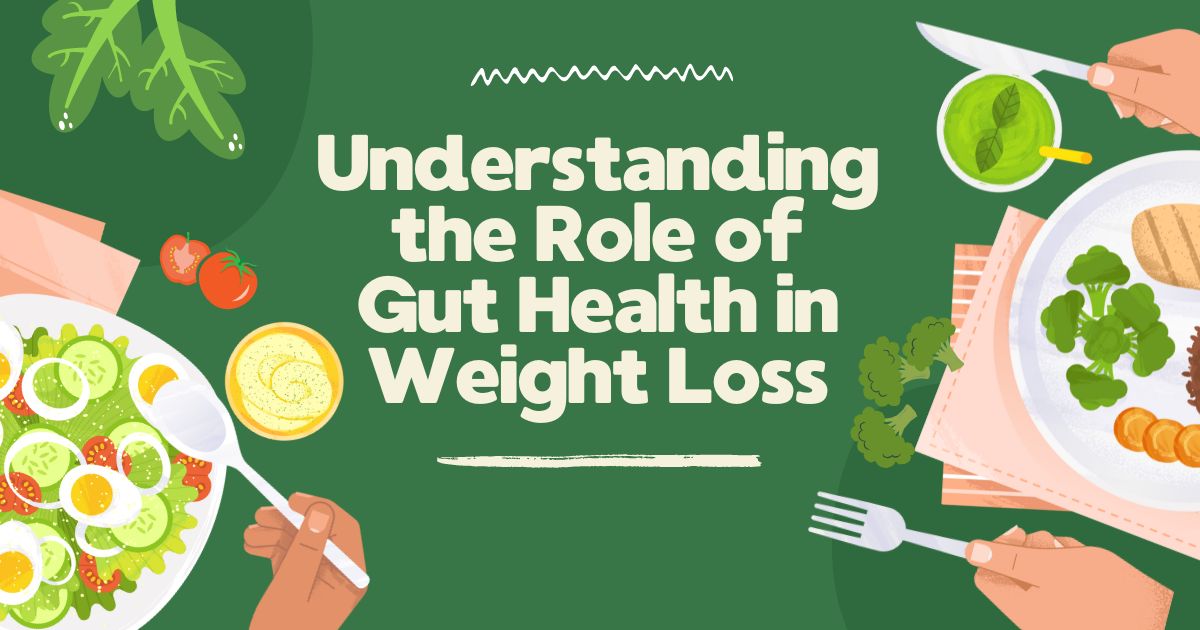Introduction to Gut Health and Weight Loss
Gut health, a vital aspect of our overall well-being, plays a crucial role in how we manage our weight. It revolves around the balance and function of the microbiome, a community of trillions of microorganisms residing in our digestive tract. These microorganisms, primarily bacteria, not only assist in digesting food but also influence our metabolism, immune system, and even our mood.
When we talk about weight management, gut health becomes a key player. A healthy gut contributes to a more efficient metabolic rate, better nutrient absorption, and an enhanced feeling of fullness after meals. Conversely, an imbalanced gut microbiome can lead to weight gain, digestive issues, and increased inflammation.
The Science Behind Gut Health and Weight Loss
The connection between gut health and weight loss is compelling and backed by science. Research has demonstrated that individuals with a diverse gut microbiota tend to have a lower risk of obesity compared to those with less microbial diversity. The types of bacteria present in the gut, particularly the balance between Firmicutes and Bacteroidetes phyla, have been linked to one’s body weight and fat storage.
Lean individuals often show a higher abundance of Bacteroidetes, while overweight individuals may have more Firmicutes. These microbial populations influence how our bodies process and store fats and sugars, impacting our weight. However, it’s important to note that this relationship is complex and influenced by genetics, diet, and lifestyle factors, suggesting a multifaceted approach to weight management through gut health.
Dietary Influences for gut microbiome
Diet plays a pivotal role in shaping our gut microbiome. A diet rich in fiber supports a diverse and resilient microbiota. Fiber-rich foods like fruits, vegetables, legumes, and whole grains provide nourishment for beneficial bacteria, promoting their growth and activity. These good bacteria, in turn, produce short-chain fatty acids (SCFAs) that have been linked to reduced inflammation and improved metabolism, aiding in weight control.
Fermented foods and probiotics are another cornerstone of gut health. Foods like yogurt, kefir, sauerkraut, and kombucha introduce beneficial bacteria into the digestive system, which can enhance the microbiome’s composition and functionality. Probiotics, defined by the World Health Organization as “live microorganisms which when administered in adequate amounts confer a health benefit on the host,” play a vital role in maintaining gut health and potentially influencing weight loss and management.
Lifestyle Factors and impact to gut microbiome
Beyond diet, lifestyle factors like exercise and stress management also significantly impact gut health. Regular physical activity has been shown to increase gut bacterial diversity, which is associated with better health and potentially easier weight management. Managing stress is equally important as it can directly affect the gut-brain axis, altering the balance of gut bacteria and potentially leading to weight gain.
Exercise promotes the growth of beneficial bacterial species that contribute to a healthy metabolism, while chronic stress can shift the balance toward bacteria linked with obesity. Thus, integrating regular physical activity and stress reduction techniques into one’s daily routine can be a powerful strategy for improving gut health and achieving weight loss goals.
Practical Tips for Improving Gut Health
To forge a path toward a healthier gut and potentially a lighter you, consider these actionable tips:
- Ramp Up Fiber Intake Gradually: Introducing high-fiber foods slowly into your diet can prevent digestive discomfort. Foods like oats, berries, legumes, and seeds not only support blood sugar regulation but are also vital for a thriving gut microbiome. Remember, fiber is a feast for your beneficial gut bacteria, promoting their growth and activity.
- Incorporate Probiotics and Prebiotics: While probiotics introduce beneficial bacteria into your gut, prebiotics provide the necessary fuel to help them flourish. Include fermented foods like yogurt, kefir, and sauerkraut in your diet. Don’t forget foods rich in prebiotics, such as garlic, onions, and asparagus, which can enhance bacterial diversity and function.
- Stay Hydrated: Drinking ample water daily is essential for maintaining a healthy gut. Hydration aids in digestion and helps keep the mucosal lining of the intestines strong, supporting the gut bacteria.
- Exercise Regularly: Physical activity can boost the diversity and number of your gut bacteria. Even moderate exercise contributes to a healthier gut microbiome.
- Minimize Stress: High stress levels can disrupt your gut microbiome. Engage in stress-reduction techniques like mindfulness, yoga, or simple breathing exercises to support your gut health.
Mindful Eating and Its Impact on Gut Health
Mindful eating is about being fully present during meals, savoring each bite, and listening to your body’s hunger and fullness cues. This practice can have a profound effect on your gut health:
- Tune into Your Body: Recognize the signals your body sends about hunger and satiety to avoid overeating.
- Chew Thoroughly: Chewing your food thoroughly aids digestion and absorption, reducing the workload on your gut.
- Appreciate Your Food: Enjoying your meals can lead to better digestion and nutrient absorption.
FAQs
- How does gut health influence weight loss? Gut health plays a crucial role in weight management by affecting digestion, nutrient absorption, and metabolic functions. A balanced gut microbiome can aid in maintaining a healthy weight.
- Can improving my gut health help me lose weight? Yes, optimizing your gut health can support weight loss efforts by enhancing metabolism, reducing inflammation, and improving hormonal balance related to appetite and satiety.
- What are the best foods to improve gut health for weight loss? Focus on fiber-rich foods, fermented products, and a diverse diet to nurture a healthy gut microbiome, which can be beneficial for weight loss.
- How long does it take to see changes in my gut health after dietary changes? While individual responses vary, you might start noticing improvements in your digestion and well-being within a few days to weeks of making dietary changes.
- Can probiotics help with weight loss? Probiotics can contribute to a healthier gut, which, in turn, may assist in weight management. However, they should complement a balanced diet and healthy lifestyle.
